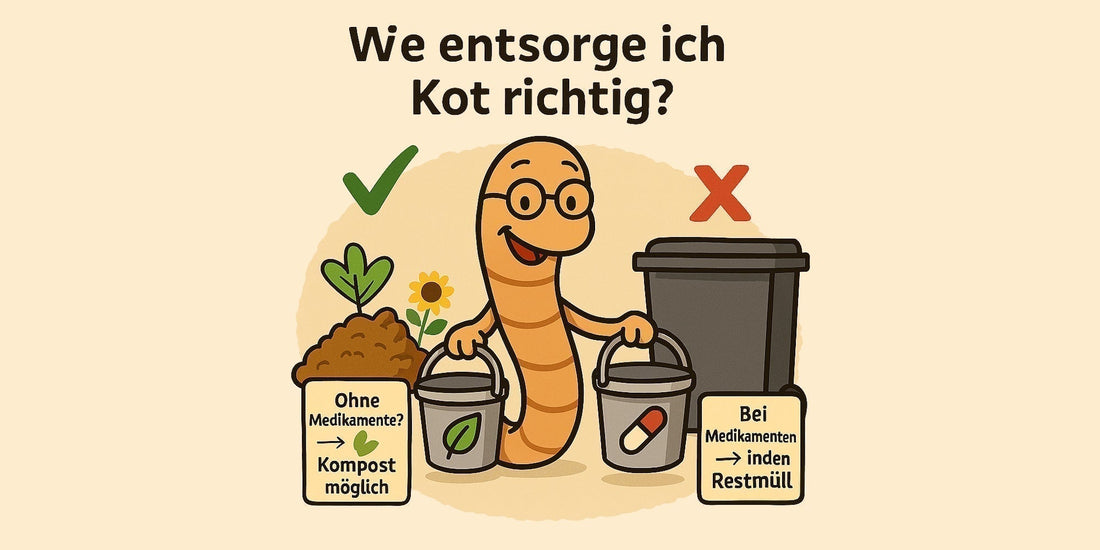
Disposing of feces from the composting toilet – this is how it's done correctly
Solid stools—affectionately known as "big business"—are collected in the composting toilet in a dry, separate, and odor-free manner. But what happens when the bucket is full? Don't worry: Here's how to properly dispose of the contents of your composting toilet without harming the environment or your nose.
What actually ends up in the solid waste container?
The solids container of your composting toilet typically collects solid feces, toilet paper, and some bedding—such as sawdust, hemp, or small animal bedding. The result is a relatively dry, odorless material that is neither liquid nor infectious. Therefore, it is not legally classified as hazardous waste.
1. Disposal via residual waste (recommended when taking medication)
If you regularly take medication, the contents of your composting toilet should not be composted. Drug residues can accumulate in the soil or plants, polluting the environment.
This is how safe residual waste disposal works:
Pack the contents of the bucket securely—ideally in a compostable bag. Seal it airtight, for example, by wrapping it in newspaper or a paper bag, and then dispose of it with the general waste.
Tip: Make sure the packaging is odor-proof to prevent unpleasant odors from developing during transport.
2. Composting – but only under certain conditions
If you are not taking any medication, you can compost the contents of your dry toilet – but do so carefully and under certain hygienic conditions.
Important rules for composting:
- Only on your own compost heap, not in the community garden.
- With sufficient structural material such as leaves, wood chips or straw.
- Do not use on vegetable or herb beds.
- Allow at least one year for rotting time.
After composting, the material is suitable for ornamental plants, trees and shrubs – but not for growing food.
Disposal in organic waste bins, green waste containers, public composting facilities or normal toilets is not permitted or recommended.
Why? Because feces aren't processed hygienically in the organic waste bin and aren't ground up in the toilet—this can cause technical or health problems.
Conclusion: Take responsibility – even after the deal
Disposing of waste from a composting toilet is easier than many people think. If you know the basics, you can act in an environmentally conscious and legally compliant manner.
If in doubt, it is better to compost it with the general waste than to compost it improperly – especially if you are taking medication.
Sustainability means not only saving resources, but also taking responsibility for what remains.
